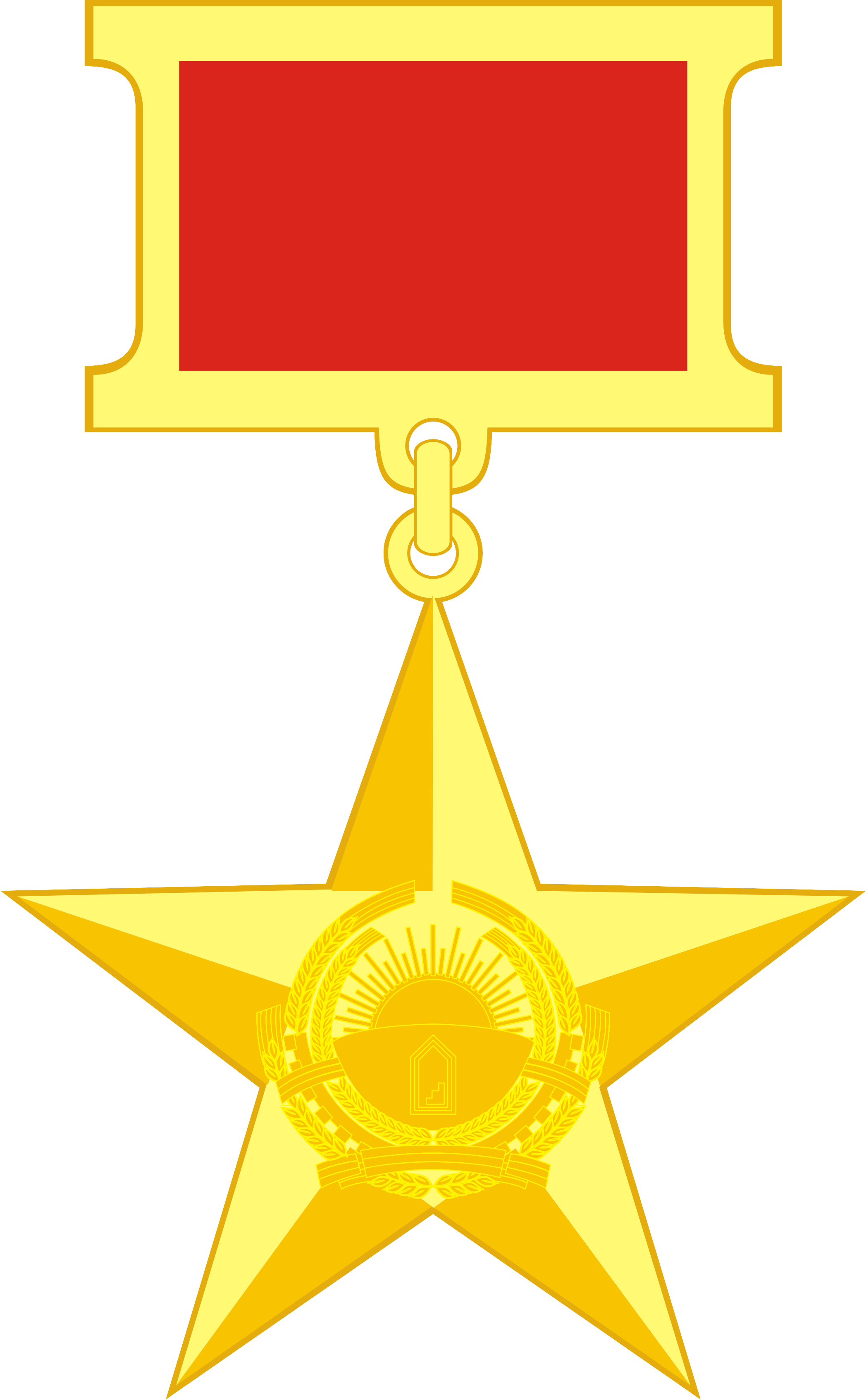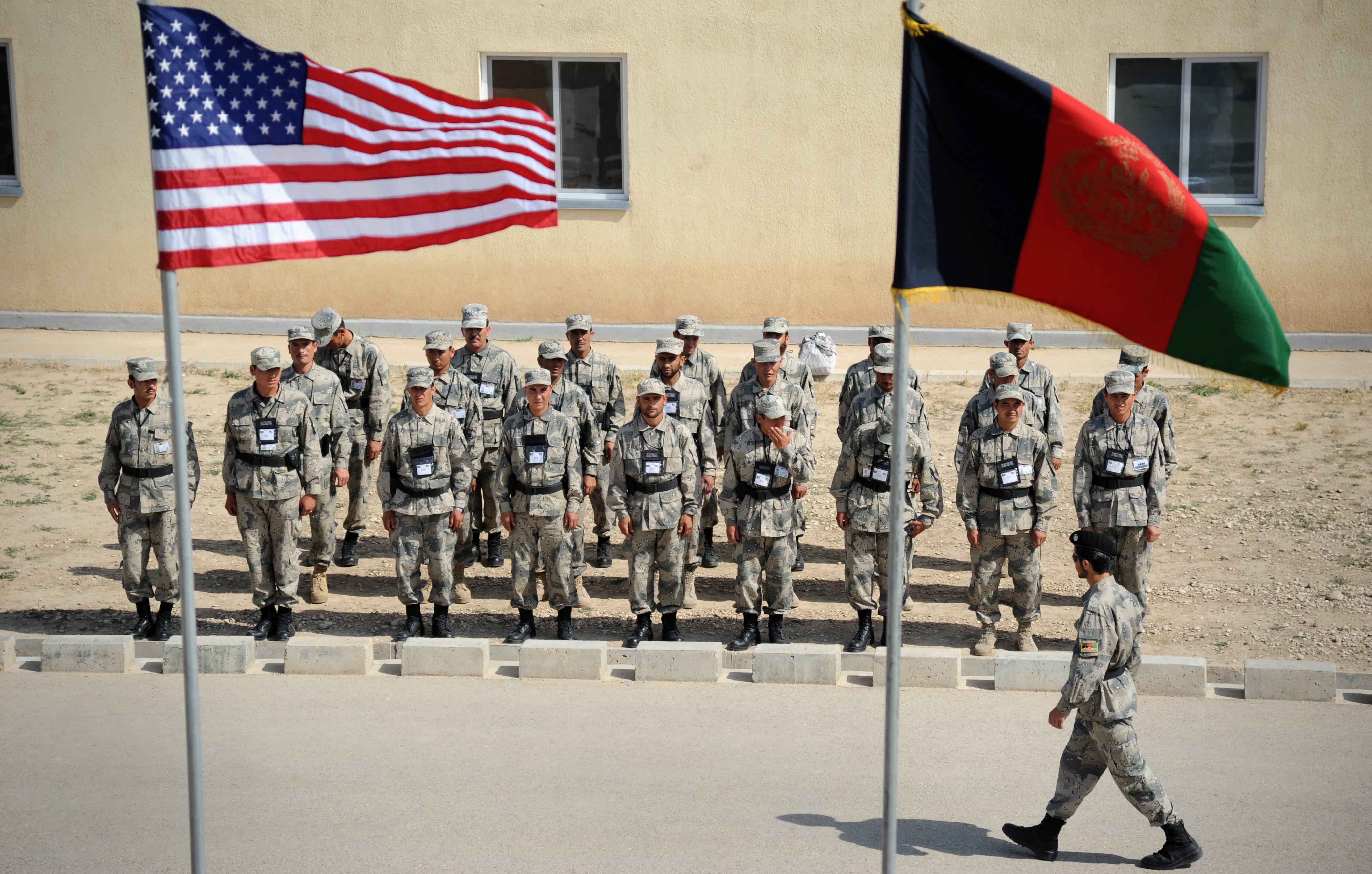|
Kar (political Group)
The Kar or Gruh-i Kar (, "Worker's Group") was a faction of the communist PDPA party in Afghanistan. At one point, Kar was one of four PDPA factions, along with the Parcham, Khalqi, and Setam-e Milli. The group was headed by Dastagir Panjsheri, who later joined the Khalq. In 1987, President Najibullah approved a plan to form four militia units from the ranks of the Gruhi Kar, to secure the group's home area of Jowzjan and Faryab Provinces. However Abdul Rashid Dostum Abdul Rashid Dostum ( ; ; Uzbek language, Uzbek Uzbek alphabet, Latin: , Uzbek Uzbek alphabet, Cyrillic: , ; born 25 March 1954) is an Afghan former Officer (armed forces), military officer, warlord and exiled politician. He is the founder and ..., an Uzbek leader then serving as a DRA Army officer, intervened to block the creation of the Kar militias and ordered the arrest of Kar members (resulting in the death of one). References Factions of the People's Democratic Party of Afghanistan {{afg ... [...More Info...] [...Related Items...] OR: [Wikipedia] [Google] [Baidu] |
People's Democratic Party Of Afghanistan
The People's Democratic Party of Afghanistan (PDPA), known as the Homeland Party ( Dari: , ) from June 1990, was a Marxist–Leninist political party in Afghanistan established on 1 January 1965. Four members of the party won seats in the 1965 Afghan parliamentary election, reduced to two seats in 1969, albeit both before the party was fully legal. For most of its existence, the party was split between the hardline '' Khalq'' and moderate '' Parcham'' factions, each of which claimed to represent the "true" PDPA. The party adhered to Marxist–Leninist ideology and toed a staunch pro-Soviet political line. The PDPA's secret constitution, which was adopted by the party during its founding congress in January 1965 but never publicly released to party cadres, described itself as "the vanguard of the working class and all laborers in Afghanistan" and defined its party ideology as "the practical experience of Marxism–Leninism". While PDPA's internal documents incorporated explicit ... [...More Info...] [...Related Items...] OR: [Wikipedia] [Google] [Baidu] |
Parcham
Parcham (Pashto/ Dari: پرچم, ) was the more moderate socialist faction of the People's Democratic Party of Afghanistan (PDPA) led by Afghan communist politician Babrak Karmal. It was later turned into the Watan (Homeland) Party with a more Islamic outlook under Mohammed Najibullah. The faction was formed directly after the founding of the Party in 1965 following ideological splits in the PDPA. While the Parchamites stressed the need for swift social-economic reforms to achieve revolution, this was in direct contrast with their PDPA rivals, the Khalqists, who sought an immediate and violent overthrow of the government. Karmal believed that Afghanistan was not developed enough for a Leninist revolutionary approach and instead sought a patriotic and anti-imperialist united front to take the next steps toward revolution. History In 1965, Babrak Karmal and Nur Muhammad Taraki established the People's Democratic Party of Afghanistan. By 1967, the party split into diffe ... [...More Info...] [...Related Items...] OR: [Wikipedia] [Google] [Baidu] |
Khalqi
Khalq (Dari/, ) was a faction of the People's Democratic Party of Afghanistan (PDPA). Its historical ''de facto'' leaders were Nur Muhammad Taraki (1967–1979), Hafizullah Amin (1979) It was also the name of the leftist newspaper produced by the same movement. The Khalq wing was formed in 1967 after the split of the party due to bitter resentment with the rival Parcham faction which had a differing revolutionary strategy. It was made up primarily of Pashtuns from rural backgrounds. Its leaders preferred a mass organization approach and advocated class struggle to overthrow the system to bring about political, economic and social changes. They would rule the Democratic Republic of Afghanistan that was formed as a result of the Saur Revolution in 1978. The Khalqists introduced radical reforms and carried out brutal crackdowns on dissent turning Afghanistan into a police state run by the AGSA (and later KAM). The Khalqist crackdowns encouraged the rebellion of the religious and e ... [...More Info...] [...Related Items...] OR: [Wikipedia] [Google] [Baidu] |
Setam-e Milli
Settam-e-Melli () was a political movement in Afghanistan, led by Tahir Badakhshi. The organization was affiliated with the Non-Aligned Movement, and was opposed by both the Afghan monarchy and by the Soviet-aligned People's Democratic Party of Afghanistan. Its followers were mostly Persian speakers. Most of its members were non-Pashtuns— Tajik, Uzbek, and other minorities—and it has been variously described as an anti-Pashtun separatist group and as a Tajik and Uzbek separatist group.Diego Cordovez & Selig S. Harrison''Out of Afghanistan: The Inside Story of the Soviet Withdrawal''(Oxford University Press, 1995), p. 34-35.Senzil Nawid, Language Policy in Afghanistan: Linguistic Diversity and National Unity, i(Koninklijke Brill NV 2012), p. 42.Frank Clements, Badakhshi, Tahir (?-1979), i(2003), p. 37. "Information on Settam-e-Melli is vague and contradictory, but it appears to have been an anti-Pashtun leftist mutation." The group was founded in 1968 by Tahir Badakh ... [...More Info...] [...Related Items...] OR: [Wikipedia] [Google] [Baidu] |
Dastagir Panjsheri
Ghulam Dastagir Panjsheri (1933 – 26 December 2022) was an Afghan communist politician and public servant. Panjsheri was usually identified as a Khalq by fellow Afghan politicians, while outside observers said he was creating his own PDPA group under the name Gruhi Kar. Early career Panjsheri studied at Kabul Teachers College and was the faculty of letters at the Kabul University. After working in a Magazine, journal under the name, ''Anis'' and teaching literature at the Kabul Teachers College he started working for the Ministry of Information and Culture. In 1965, he became a member of the Central Committee of the PDPA at their first congress meeting on January 1, 1965. When Babrak Karmal left the PDPA because of the power struggle between the Khalq and the Parchams, Panjsheri left the party with Karmal and the rest of his supporters, he eventually returned to his original position in the PDPA and became a member of the Khalqi faction again. Later on, he tried to establish hi ... [...More Info...] [...Related Items...] OR: [Wikipedia] [Google] [Baidu] |
Mohammad Najibullah
Mohammad Najibullah Ahmadzai (6 August 1947 – 27 September 1996) was an Afghan military officer and politician who served as the second president of Afghanistan from 1987 until his resignation in April 1992, shortly after the Afghan mujahideen's takeover of Kabul. He was also the General Secretary of the People's Democratic Party of Afghanistan, General Secretary of the People's Democratic Party of Afghanistan (PDPA) from 1986 to 1992. After a failed attempt to flee to India, Najibullah remained in Kabul, and lived in the Afghanistan and the United Nations, United Nations headquarters until his assassination during the Taliban, Taliban's first Battle of Kabul (1992–1996), capture of Kabul in 1996. A graduate of Kabul University, Najibullah held different careers under the People's Democratic Party of Afghanistan (PDPA). Following the Saur Revolution and the establishment of the Democratic Republic of Afghanistan, Najibullah was a low profile bureaucrat. He was sent into exile ... [...More Info...] [...Related Items...] OR: [Wikipedia] [Google] [Baidu] |
Jowzjan Province
Jowzjan, sometimes spelled Jawzjan or Jowzjan () is one of the thirty-four provinces of Afghanistan, located in the north of the country bordering neighboring Turkmenistan. The province is divided into 11 districts and contains hundreds of villages. It has a population of about 613,481 residents, which is a multi-ethnic society. Sheberghan is the capital of Jowzjan province. Etymology It is thought that the name is an Arabicized version of the Persian word gowzgān "(Land of) Walnuts". History The province is named after the early medieval region and principality of Juzjan. Between the early 16th century and mid-18th century, the area was ruled by the Khanate of Bukhara. It was conquered by Ahmad Shah Durrani and became part of the Durrani Empire in or about 1750, which formed to the modern state of Afghanistan. The area was untouched by the British during the three Anglo-Afghan wars that were fought in the 19th and 20th centuries. Recent history Following a series of chang ... [...More Info...] [...Related Items...] OR: [Wikipedia] [Google] [Baidu] |
Faryab Province
Faryab (Dari,Pashto : فاریاب) is one of the thirty-four provinces of Afghanistan, which is located in the north of the country bordering neighboring Turkmenistan. It has a population of about 1,109,223, which is multi-ethnic and mostly a tribal society. The province encompasses 15 districts and over 1,000 villages. The capital of Faryab province is Maymana. It also borders Jowzjan Province, Sar-e Pol Province, Ghor Province and Badghis Province. History Faryab is a Persian toponym meaning "lands irrigated by diversion of river water". The name Faryab takes its name from a town founded in the area by the Sassanids. It is the home town of the famed Islamic philosopher, al-Farabi (per the biographer Ibn al-Nadim). The area is part of the trans-border region of Greater Khorasan; during the colonial era, British geographers referred to the area as Afghan Turkestan. The history of settlement in Faryab is ancient and comprises layer upon layer of occupation. At times, it ... [...More Info...] [...Related Items...] OR: [Wikipedia] [Google] [Baidu] |
Abdul Rashid Dostum
Abdul Rashid Dostum ( ; ; Uzbek language, Uzbek Uzbek alphabet, Latin: , Uzbek Uzbek alphabet, Cyrillic: , ; born 25 March 1954) is an Afghan former Officer (armed forces), military officer, warlord and exiled politician. He is the founder and leader of the Junbish-e Milli political party, and was a senior army officer in the military of the former Democratic Republic of Afghanistan, Afghan communist government during the Soviet–Afghan War, initially part of the Afghan Commando Forces. In 2001, Dostum became a key indigenous ally to the U.S. Special Forces and the CIA during the campaign to topple the Taliban government. He is one of the most powerful warlords since the beginning of the Afghan conflict, infamous for being an opportunist and siding with winners during Afghanistan's several civil wars. Dostum was also referred to as a kingmaker due to his significant role in politics of Afghanistan, Afghan politics. An ethnic Uzbek people, Uzbek from a peasant family in Jawzjan ... [...More Info...] [...Related Items...] OR: [Wikipedia] [Google] [Baidu] |
Democratic Republic Of Afghanistan
The Democratic Republic of Afghanistan, later known as the Republic of Afghanistan, was the Afghan state between History of Afghanistan (1978–1992), 1978 and 1992. It was bordered by Pakistan to the east and south, by Iran to the west, by the Soviet Union to the north, and by China to the northeast. Established by the People's Democratic Party of Afghanistan (PDPA) following the Saur Revolution in April 1978, it came to rely heavily on the Soviet Union for financial and military assistance and was therefore widely considered to be a Soviet empire, Soviet satellite state. The PDPA's rise to power is seen as the beginning of the ongoing Afghan conflict, and the majority of the country's years in existence were marked by the Soviet–Afghan War. It collapsed by the end of the Afghan Civil War (1989–1992), First Afghan Civil War in April 1992, having lasted only four months after the dissolution of the Soviet Union. The PDPA began ruling Afghanistan after ousting the unelected a ... [...More Info...] [...Related Items...] OR: [Wikipedia] [Google] [Baidu] |



